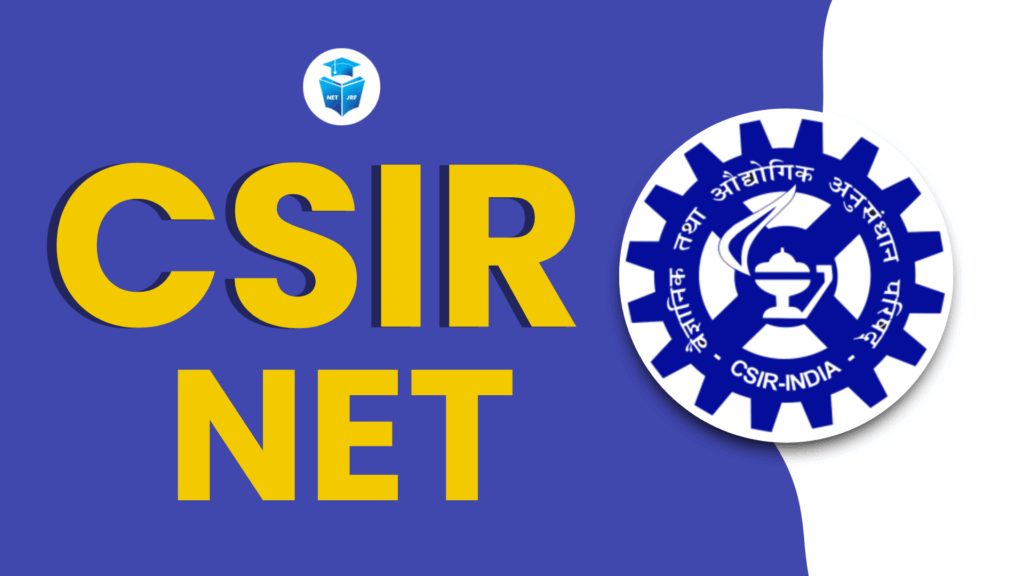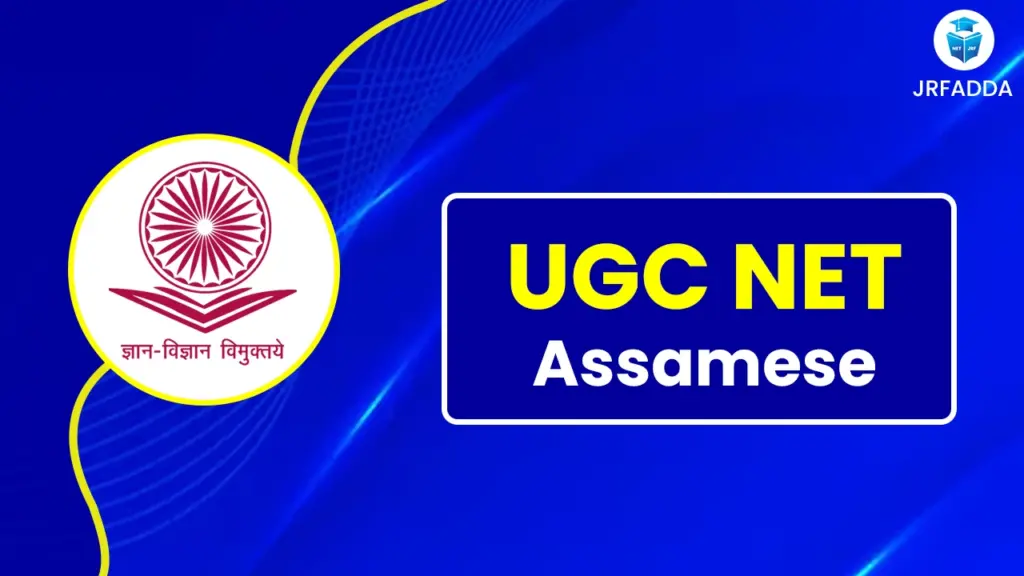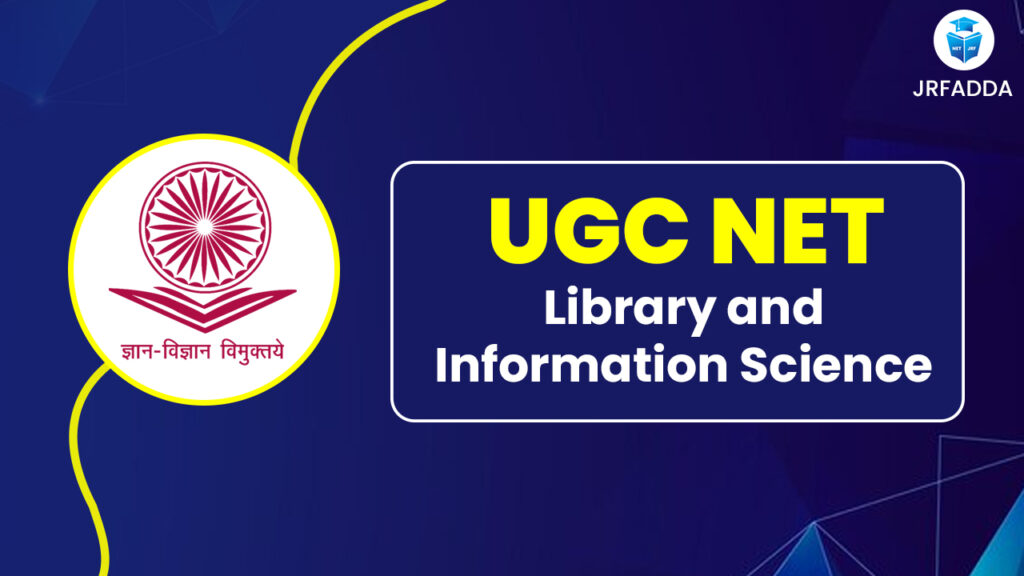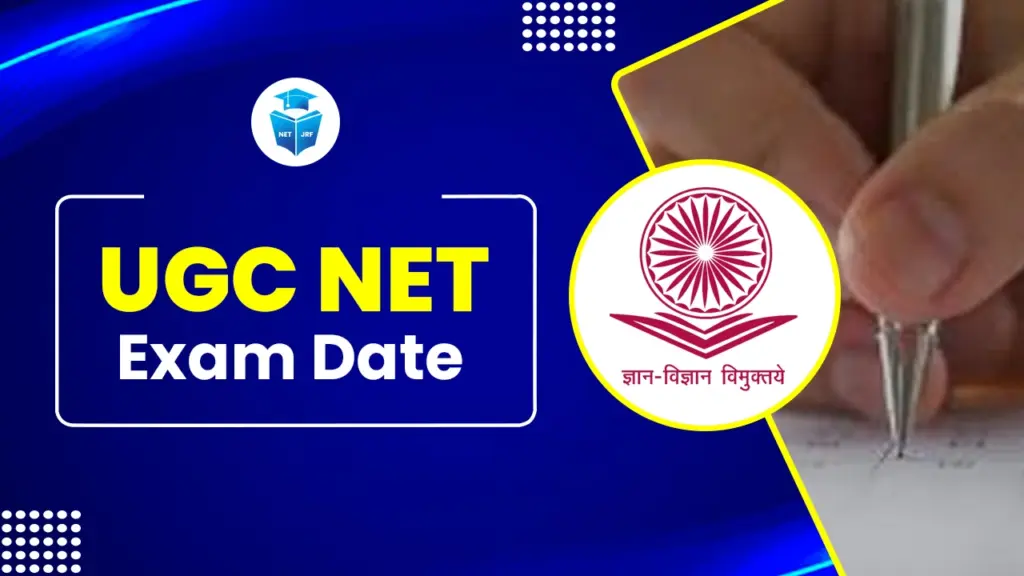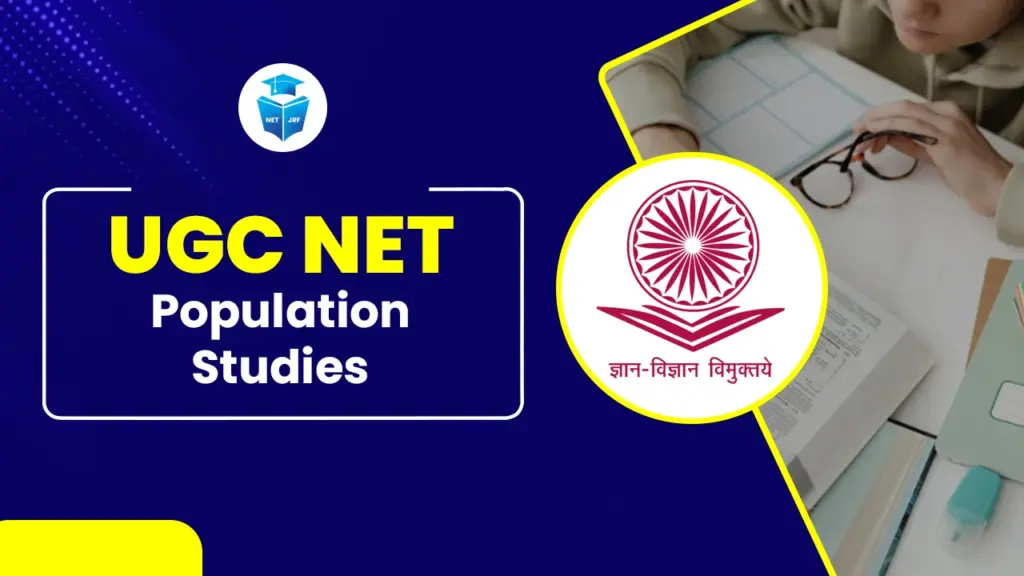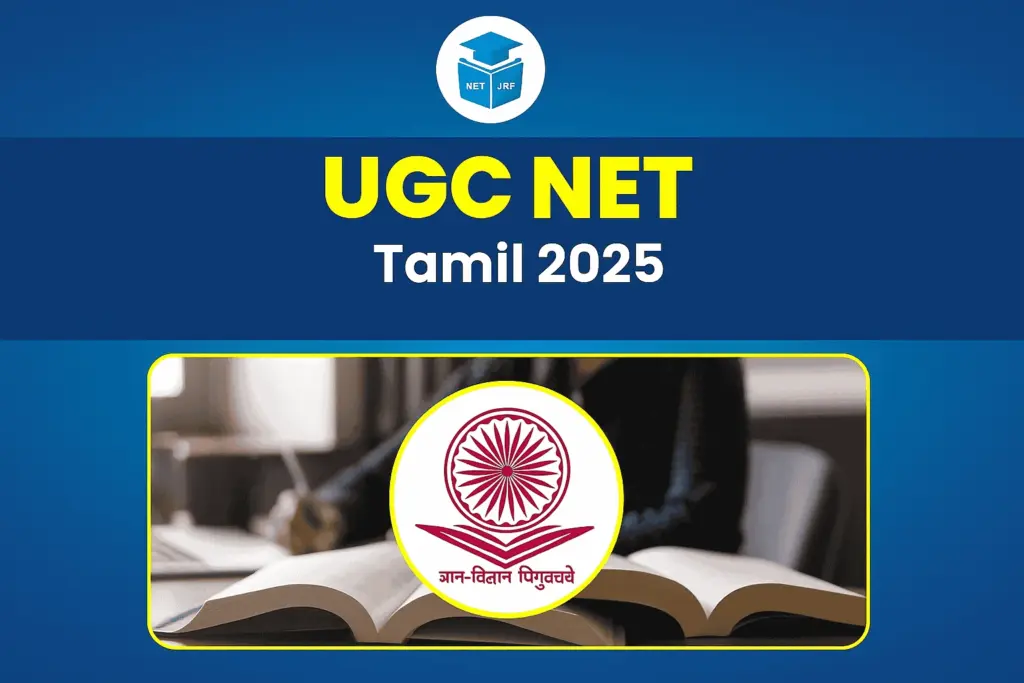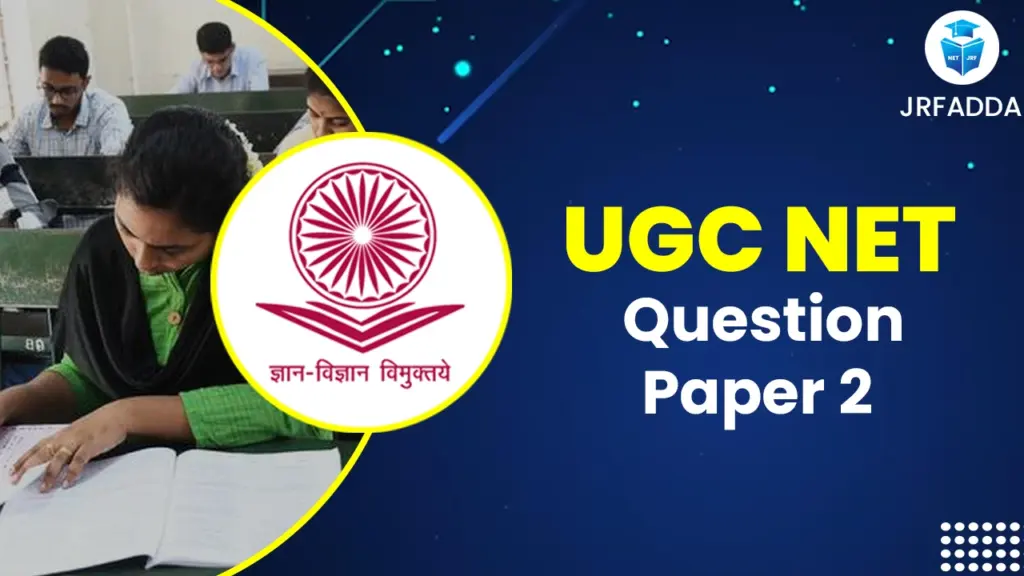The National Testing Agency (NTA) will conduct the Joint CSIR-UGC NET June 2025 exam to determine the eligibility of Indian nationals for the Junior Research Fellowship (JRF), Assistant Professor positions, or admission to Ph.D. programs in Indian universities and colleges. This computer-based test (CBT) will cover various science disciplines.
Due to a scheduling conflict with the Haryana Teacher Eligibility Test (HTET) 2024, which falls on 26th and 27th July 2025, the CSIR-UGC NET June 2025 exam has been rescheduled. The exam will now be held on 28th July 2025 for all five subjects.
Also Read: CSIR NET Application Form 2025
CSIR NET Admit Card 2025 Released
The CSIR NET Admit Card 2025 was officially released on 24 July 2025. Candidates registered for the exam scheduled on 28 July 2025 can now download their admit cards from the official website. The admit card is a mandatory document for entry to the examination hall and contains important details like exam date, venue, candidate’s information, and exam instructions.
Candidates should download and print their admit card promptly and verify all details. In case of any discrepancies or difficulties in downloading, candidates can contact the NTA Helpdesk at 011-40759000 or email csirnet@nta.ac.in.
Also Read: CSIR NET Admit Card 2025
What is CSIR NET?
CSIR NET is a competitive examination that assesses candidates in core scientific disciplines. It is jointly conducted by CSIR and UGC to ensure the availability of qualified professionals in Indian universities and research organizations. The test is applicable only for science-based subjects, and those who qualify are eligible for the award of Junior Research Fellowship (JRF) or can apply for Lectureship (LS)/Assistant Professor positions in recognized institutions.
Candidates who clear CSIR NET become eligible for pursuing PhDs under prestigious government fellowships or begin careers as lecturers in universities and colleges across the country.
CSIR NET 2025 Exam Overview
The Joint CSIR-UGC NET June 2025 exam will be conducted by the National Testing Agency (NTA) for eligibility determination for Junior Research Fellowship (JRF) and Lectureship/Assistant Professorship across five core science subjects. Below is the complete schedule and exam structure:
| Exam Event | Details |
|---|---|
| Submission of Online Application Form | 03 June 2025 to 23 June 2025 (up to 11:59 PM) |
| Last Date for Payment of Application Fee | 24 June 2025 (up to 11:59 PM) |
| Application Correction Window | 25 June to 26 June 2025 (up to 11:59 PM) |
| Date(s) of Examination | 26, 27 & 28 July 2025 (rescheduled to 28 July for all subjects) |
| Mode of Exam | Computer-Based Test (CBT) |
| Duration | 180 minutes (3 hours) |
| Type of Questions | Objective Type (Multiple Choice Questions – MCQs) |
| Medium of Question Paper | Bi-lingual: English and Hindi |
| Total Test Papers / Subjects | 5 Subjects: 1. Earth, Atmospheric, Ocean & Planetary Sciences 2. Chemical Sciences 3. Life Sciences 4. Mathematical Sciences 5. Physical Sciences |
| Official Websites | csirnet.nta.ac.in / nta.ac.in |
CSIR-UGC NET June 2025 Exam Schedule
Previously, the CSIR-UGC NET June 2025 exam was to be conducted on 26th, 27th and 28th July 2025. But due to conflict with the Haryana Teacher Eligibility Test (HTET) 2024, planned on 26th and 27th July 2025, the CSIR-UGC NET June 2025 exam has been rescheduled. The exam will now be held on 28th July 2025 for all five subjects. The updated schedule is as follows:
| Subject | Date of Exam |
| Mathematical Sciences | 28th July 2025 |
| Earth, Atmospheric, Ocean and Planetary Sciences | 28th July 2025 |
| Chemical Sciences | 28th July 2025 |
| Life Sciences | 28th July 2025 |
| Physical Sciences | 28th July 2025 |
CSIR NET Full Form
The full form of CSIR NET is Council of Scientific and Industrial Research – National Eligibility Test. The exam is commonly referred to as CSIR UGC NET, highlighting its association with the University Grants Commission (UGC).
CSIR NET Eligibility Criteria 2025
Before applying, candidates must verify if they meet the necessary eligibility conditions set by CSIR and NTA. The CSIR NET eligibility criteria include educational qualifications and other conditions mentioned below.
Educational Qualification
Candidates must possess at least one of the following degrees from a recognized university or institute:
- BTech/BE/BPharma/MBBS/BS (4 years program)/Integrated BS-MS/MSc
- For General/General-EWS/OBC candidates: Minimum 55% marks
- For SC/ST/PwD/Third Gender candidates: Minimum 50% marks
Candidates who are currently enrolled in their MSc or have completed the required academic programs but are awaiting results are also eligible to apply under the Result Awaited category, provided they meet the marks criteria upon final result declaration.
Check out CSIR NET Exam date 2025 here!
CSIR NET Age Limit 2025
The age limit varies based on the post for which the candidate is applying:
For Junior Research Fellowship (JRF)
- Maximum Age: 28 years as of the date specified in the official notification.
- Age Relaxation:
- SC/ST/Third Gender/PwD/Female: Up to 5 years
- OBC (Non-Creamy Layer): Up to 3 years
For Lectureship (LS)/Assistant Professor
- No upper age limit is specified for candidates applying under this category.
This flexible age criteria make it convenient for professionals or aspirants returning to academics to pursue lectureship positions even beyond the age cap set for JRF.
CSIR NET Subjects List
The CSIR NET exam is conducted for the following five subject areas, all within the broader domain of science and technology:
| Subject Name | Subject Code |
| Chemical Sciences | 701 |
| Earth, Atmospheric, Ocean and Planetary Sciences | 702 |
| Life Sciences | 703 |
| Mathematical Sciences | 704 |
| Physical Sciences | 705 |
Applicants must choose one of these subjects when filling out the CSIR NET application form. It is important to ensure that your academic background aligns with the subject you choose for the exam.
CSIR NET Exam Pattern 2025
The CSIR NET question paper for each subject consists of three sections: Part A, Part B, and Part C.
Part A (Common for All Subjects)
This section focuses on General Aptitude, including logical reasoning, graphical analysis, analytical and numerical ability, quantitative comparison, series formation, and puzzles.
- Total Questions: 20
- Questions to Attempt: Any 15
- Marks for Each Correct Answer: 2
- Total Marks: 30
- Negative Marking: 0.5 marks per wrong answer
Subject-Wise CSIR NET Exam Pattern
Life Sciences
| Part | Total Questions | Max Questions to Attempt | Marks per Correct Answer | Negative Marking |
| A | 20 | 15 | 2 | 0.5 |
| B | 50 | 35 | 2 | 0.5 |
| C | 75 | 25 | 4 | 1.0 |
| Total | 145 | 75 | – | – |
Chemical Sciences
| Part | Total Questions | Max Questions to Attempt | Marks per Correct Answer | Negative Marking |
| A | 20 | 15 | 2 | 0.5 |
| B | 40 | 35 | 2 | 0.5 |
| C | 60 | 25 | 4 | 1.0 |
| Total | 120 | 75 | – | – |
Earth, Atmospheric, Ocean and Planetary Sciences
| Part | Total Questions | Max Questions to Attempt | Marks per Correct Answer | Negative Marking |
| A | 20 | 15 | 2 | 0.5 |
| B | 50 | 35 | 2 | 0.5 |
| C | 80 | 25 | 4 | 1.32 |
| Total | 150 | 75 | – | – |
Mathematical Sciences
| Part | Total Questions | Max Questions to Attempt | Marks per Correct Answer | Negative Marking |
| A | 20 | 15 | 2 | 0.5 |
| B | 40 | 25 | 3 | 0.75 |
| C | 60 | 20 | 4.75 | None |
| Total | 120 | 60 | – | – |
Physical Sciences
| Part | Total Questions | Max Questions to Attempt | Marks per Correct Answer | Negative Marking |
| A | 20 | 15 | 2 | 0.5 |
| B | 25 | 20 | 3.5 | 0.875 |
| C | 30 | 20 | 5 | 1.25 |
| Total | 75 | 55 | – | – |
CSIR NET Syllabus 2025
The CSIR NET syllabus is divided into three sections: Part A (General Aptitude), which is common to all subjects, and Part B & C, which are subject-specific. The exam is conducted in five core areas: Life Sciences, Chemical Sciences, Physical Sciences, Earth Sciences, and Mathematical Sciences.
CSIR NET Part A Syllabus (Common for All Subjects)
| Section | Topics Covered |
| Numerical Ability | Number system, simplification, averages, percentages, profit & loss, SI & CI, surds, indices, LCM & HCF, logarithms, partnership, probability, mensuration |
| Reasoning Ability | Series formation, puzzles, ranking, coding-decoding, distance & direction, calendar, clock |
| Data Interpretation & Graphs | Bar graphs, pie charts, line graphs, tabulation, mean, median, mode, dispersion measures |
CSIR NET Subject-Wise Syllabus for Part B & C
| Subject | Topics Covered |
| Life Sciences | Molecular biology, cellular organization, developmental biology, cell signaling, diversity of life forms, ecology, evolution |
| Chemical Sciences | Inorganic chemistry, organic chemistry, physical chemistry, interdisciplinary topics |
| Earth, Atmospheric, Ocean and Planetary Sciences | Geology, applied geology, physical geography, oceanography, meteorology, geophysics |
| Mathematical Sciences | Linear algebra, real & complex analysis, differential equations (ODE & PDE), topology, statistics, mechanics, numerical analysis, calculus of variations |
| Physical Sciences | Classical mechanics, quantum mechanics, thermodynamics, statistical physics, EM theory, atomic & nuclear physics, electronics, experimental physics |
How to Apply for CSIR NET 2025?
Follow these step-by-step instructions to successfully complete your CSIR NET 2025 application online:
Step-by-Step Application Process
-
Visit the Official Website
Go to csirnet.nta.ac.in or nta.ac.in. -
Register as a New User
Click on “New Registration” and fill in basic details like name, contact information, and security questions. Submit to receive your Application Number. -
Fill the Application Form
Log in using your Application Number and Password. Enter academic qualifications, preferred subject, exam center, and other required details. -
Upload Required Documents
Upload scanned copies of:-
Passport-sized Photograph (10–200 KB, JPG/JPEG)
-
Signature (4–30 KB, JPG/JPEG)
-
Category Certificate (if applicable)
-
PwD Certificate (if applicable)
-
-
Pay the Application Fee
Choose an online payment method (Net Banking, Credit/Debit Card, UPI) and pay the application fee:Category Application Fee General ₹ 1,100 General-EWS/OBC (NCL) ₹ 550 SC/ST/Third Gender ₹ 275 PwD ₹ 0 (Exempted) -
Download Confirmation Page
After successful payment, download and save the confirmation page for future reference.
Note: Keep a printed copy of the application form and fee receipt for your records.
CSIR NET 2025 Admit Card
The CSIR NET 2025 Admit Card is a mandatory document required at the exam center. NTA will release the admit card a few days before the examination.
How to Download the CSIR NET Admit Card 2025
-
Visit csirnet.nta.ac.in
-
Click on the “Download Admit Card” link.
-
Log in using your Application Number and Password or Date of Birth.
-
Click “Download Admit Card” and save the PDF.
-
Take a printout of the admit card to carry on the exam day.
Details Mentioned on Admit Card
-
Candidate’s Name and Photograph
-
Roll Number and Application Number
-
Subject Chosen
-
Exam Date and Time
-
Exam Centre Address
-
Important Exam Instructions
How to Prepare for CSIR NET Effective Strategy for 2025
Cracking the CSIR NET exam requires focused preparation, time management, and consistent revision. Here’s a step-by-step guide to help you build an effective study plan.
- Master the Syllabus and Exam Pattern: Start by thoroughly understanding the CSIR NET syllabus and exam structure. Know the subject-wise marking scheme and weightage to prioritize key topics.
- Create a Study Plan: Design a realistic and personalized study timetable. Divide the syllabus into manageable sections and allocate time based on topic difficulty and your familiarity.
- Use Trusted Study Resources: Choose quality books, online platforms, and coaching notes. Create your own short notes to aid in quick revision and better retention.
- Practice with Previous Year Papers (PYQs): Solving CSIR NET previous year question papers is essential. It familiarizes you with the exam pattern and helps identify recurring topics and tricky sections.
- Attempt Regular Mock Tests: Take full-length mock tests under timed conditions to simulate the real exam environment. Analyze your performance to improve accuracy and speed.
- Manage Your Time Wisely: Practice time management during preparation and in exams. Allocate specific time per section/question and avoid spending too long on one problem.
- Revise Regularly: Revision is key to retaining information. Use flashcards, summaries, and short notes for quick reviews.
- Stay Positive and Focused: A confident mindset goes a long way. Stay consistent, avoid distractions, and remind yourself of your goals regularly.
- Seek Support When Needed: Join online forums, peer groups, or reach out to mentors to clear doubts or gain insights. Collaborative learning can often simplify complex topics.
CSIR NET Study Material
To crack the CSIR NET exam, having the right study material is crucial. Here’s a guide to the best books for each subject area to aid your preparation.
Best CSIR NET Books:
| Subject Area | Topic | Recommended Book | Author(s) |
|---|---|---|---|
| Life Sciences | Molecular Biology | Molecular Biology of the Cell | Alberts |
| Biochemistry | Lehninger Principles of Biochemistry | David L. Nelson & Michael M. Cox | |
| Cell Biology | Cell and Molecular Biology | Gerald Karp | |
| Genetics | Principles of Genetics | D. Peter Snustad & Michael J. Simmons | |
| Ecology & Evolution | Ecology: From Individuals to Ecosystems | Michael Begon, Colin R. Townsend, John L. Harper | |
| General Aptitude (Part A) | CSIR-NET General Aptitude: A New Outlook | Christy Varghese & B. Francis | |
| Chemical Sciences | Inorganic Chemistry | Concise Inorganic Chemistry | J. Derek & J. B. Denny |
| Organic Chemistry | Organic Chemistry | Paula Y. Bruice | |
| Physical Chemistry | Physical Chemistry | P.W. Atkins | |
| Chemical Engineering | Introduction to Chemical Engineering | J.D. Seader & Ernest J. Henley | |
| General Aptitude (Part A) | General Aptitude for CSIR-NET | G.K. Bansal | |
| Physical Sciences | Classical Mechanics | Classical Mechanics | Herbert Goldstein |
| Quantum Mechanics | Principles of Quantum Mechanics | R. Shankar | |
| Electromagnetic Theory | Introduction to Electrodynamics | David J. Griffiths | |
| Thermodynamics & Statistical Mechanics | Statistical Mechanics | R.K. Pathria | |
| General Aptitude (Part A) | CSIR-NET General Aptitude: A New Outlook | Christy Varghese & B. Francis | |
| Mathematical Sciences | Linear Algebra | Linear Algebra Done Right | Sheldon Axler |
| Real & Complex Analysis | Principles of Mathematical Analysis | Walter Rudin | |
| Differential Equations | Differential Equations | George F. Simmons | |
| Topology | Introduction to Topology | Bert Mendelson | |
| Probability & Statistics | A First Course in Probability | Sheldon Ross | |
| General Aptitude (Part A) | General Aptitude for CSIR-NET | G.K. Bansal | |
| Earth, Atmospheric, Ocean & Planetary Sciences | Geology & Applied Geology | Introduction to Geology | Arthur Holmes |
| Oceanography | Oceanography: An Invitation to Marine Science | Tom Garrison | |
| Meteorology | Introduction to Atmospheric Science | John M. Wallace | |
| Geophysics | Introduction to Geophysics | William Lowrie | |
| General Aptitude (Part A) | CSIR-NET General Aptitude: A New Outlook | Christy Varghese & B. Francis |
CSIR NET PYQs
PYQs are an essential part of your preparation toolkit. Here’s why:
- Familiarity with Exam Pattern: PYQs offer real insights into the question format, difficulty level, and time allocation. This helps you strategize your approach on exam day.
- Identification of High-Weightage Topics: Analyzing multiple years’ papers reveals commonly repeated topics, enabling smarter, targeted preparation.
- Better Time Management: Practicing under exam-like conditions improves your speed and helps you develop time-efficient strategies.
- Stronger Conceptual Clarity: Reviewing PYQs reinforces understanding and helps you apply concepts in various formats.
- Understanding Difficulty Trends and Cut-offs: PYQs provide a glimpse into changing trends and help you set realistic expectations for performance and cut-offs.
- Mock Tests and Comprehensive Revision: Treat PYQs as mock tests to assess your preparation. They are ideal for revising the entire syllabus holistically.
Last 5 Years CSIR NET PYQs PDF
| Year | Physical Sciences | Chemical Sciences | Life Sciences | Mathematical Sciences | Earth Sciences |
| 2024 | Download PDF | Download PDF | Download PDF | Download PDF | Download PDF |
| 2023 | Download PDF | Download PDF | Download PDF | Download PDF | Download PDF |
| 2022 | Download PDF | Download PDF | Download PDF | Download PDF | Download PDF |
| 2021 | Download PDF | Download PDF | Download PDF | Download PDF | Download PDF |
| 2020 | Download PDF | Download PDF | Download PDF | Download PDF | Download PDF |
Conclusion
To excel in the CSIR NET 2025, start with a clear understanding of the syllabus, develop a disciplined study routine, use quality materials, and make PYQs a cornerstone of your preparation. With the right strategy and consistent effort, qualifying for JRF or Lectureship is well within reach.
CSIR NET FAQs
What is the CSIR NET exam conducted for?
The CSIR NET exam is conducted to determine eligibility for the Junior Research Fellowship (JRF) and Lectureship (LS)/Assistant Professor positions in universities and research institutions across India in the field of science and technology.
Who is eligible to appear for the CSIR NET exam?
Candidates must have a degree in MSc, BE/BTech, BPharma, or equivalent with at least 55% marks (50% for reserved categories). Final-year students can also apply provisionally.
What is the age limit for CSIR NET?
The age limit for JRF is 28 years, with age relaxations for reserved categories. There is no upper age limit for Lectureship or Assistant Professor roles.
How many times is CSIR NET conducted in a year?
CSIR NET is typically conducted twice a year, once in June and once in December, as per the schedule announced by the National Testing Agency (NTA).
In which subjects is the CSIR NET exam conducted?
CSIR NET is held in five subjects: Life Sciences, Chemical Sciences, Physical Sciences, Mathematical Sciences, and Earth, Atmospheric, Ocean and Planetary Sciences. Candidates must select one subject based on their academic background.

